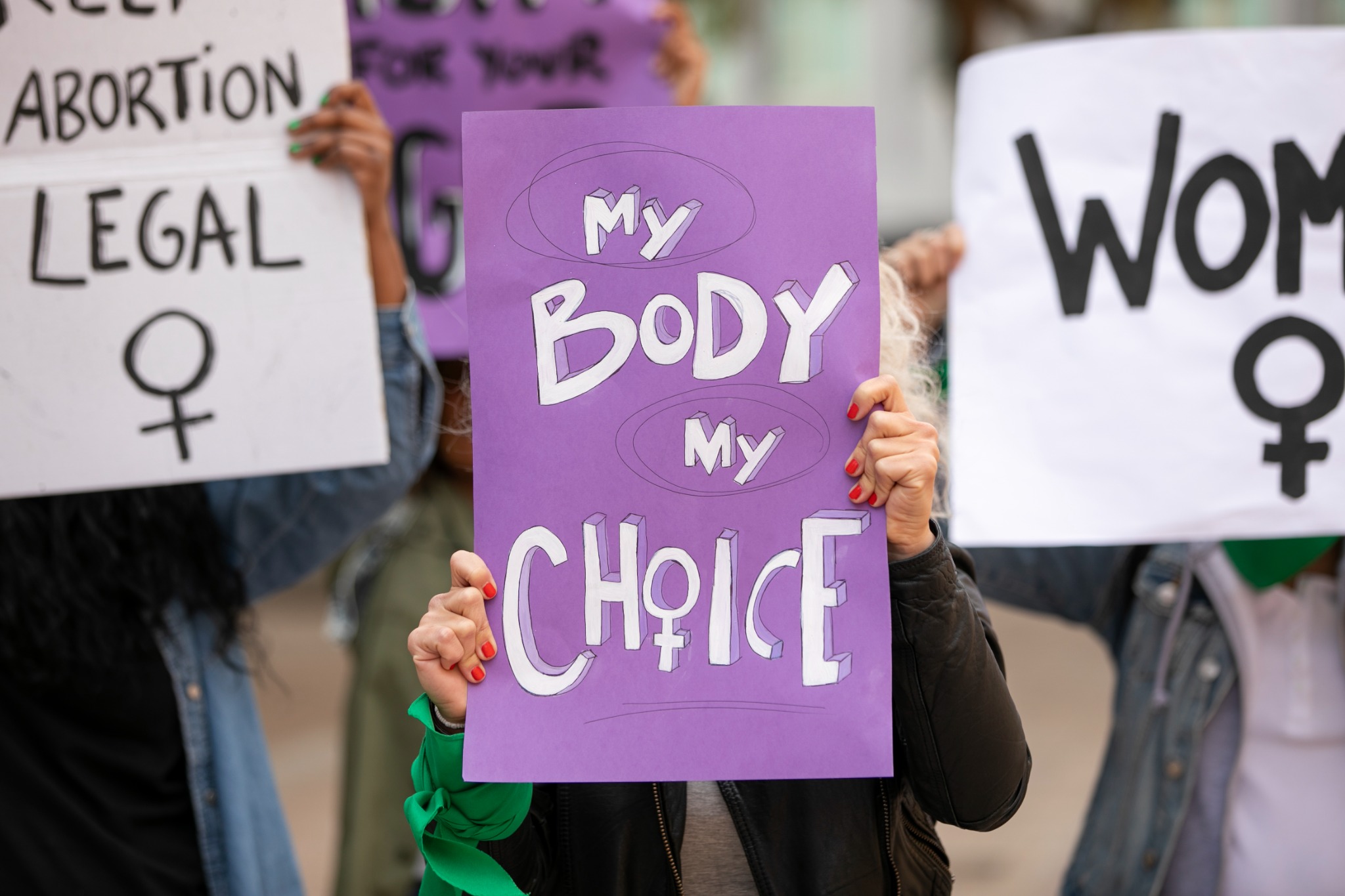
Virginia advocates tackle rising abortion demand, focus on future legislative action
At a Glance: As Virginia grapples with increased demand for abortion care, reproductive rights advocates are mobilizing to protect access following recent legislative challenges. With a constitutional amendment delayed until 2025, they focus on voter education, lobbying efforts, and addressing the influx of out-of-state patients in the wake of the Dobbs decision.
With the 2024 elections coming up, the battle over abortion access in Virginia stands at a crossroads, mirroring national reproductive rights discussions.
One in four American women will have an abortion by the age of 45, according to the Guttmacher Institute. However, nearly one in three women of reproductive age live in states where abortion is heavily restricted.
“It's a fundamental health crisis that we are living in this post-Dobbs world,” Communication director for Planned Parenthood Advocates of Virginia, RaeAnn Pickett said.
During the November 2023 state elections, Virginia voters rejected Republican Gov. Glenn Youngkin’s proposed 15-week ban. Democratic pro-choice candidates also successfully flipped control of both state legislative chambers.
With the newly gained majority, Democrats introduced a constitutional amendment to protect reproductive rights. It is now delayed until the 2025 session.
This is because in Virginia, an amendment must pass the legislature in two separate sessions with an intervening election, and then secure a majority in a public ballot to become law.
“We're looking at the fall of 2026 for the earliest, that the constitutional amendment could go to a popular vote on the ballot,” said Geri Greenspan, a senior staff attorney at the American Civil Liberties Union (ACLU) of Virginia.
Meanwhile, a Virginia House panel rejected two Republican abortion restriction bills in early February.
The first was by Tim Griffin of Bedford, which aimed to ban abortions completely with the only exception of saving the life of the pregnant person. It was unanimously voted down 8-0. Another bill by Del. Phillip Scott of Spotsylvania sought to prohibit abortions based on the fetus's sex or race. This was defeated 5-3.
The GOP anti-abortion bills in Virginia might not reflect voter views, according to reproductive rights advocates. A January poll by the Wilder School Commonwealth at Virginia Commonwealth University showed nearly six in ten Virginians back individuals’ rights to make their own reproductive decisions
“It was not surprising, but more disheartening to see that even when so many candidates won their elections on fighting for reproductive rights, that anti-abortion extremists would still propose things like a total abortion ban,” Pickett said.
Pickett noted a strong advocacy push for reproductive rights in Virginia, despite some political focus on restrictions.
One major challenge in advancing these rights is the influx of out-of-state patients seeking abortions in Virginia, which strains resources. Virginia is one of the only remaining Southern states to offer abortion access up to 26 weeks in pregnancy.
“We're serving every patient in the Commonwealth and every patient who's traveling from states like Florida, Georgia, Mississippi, Alabama,” Pickett said, “There's nowhere else for these folks to go.”
Out-of-state patients at The Virginia League for Planned Parenthood rose from between 5 to 7% to 18% since Jackson v. Dobbs, more than doubling the previous figures, according to Pickett.
Planned Parenthood is just one of Virginia’s fewer than 20 abortion providers. About 70% of rural hospitals in the state lack maternity and abortion care.
“Virginia is a geographically large state,” Greenspan said. “It has a lot of rural areas where people don't have easy access to medical care, especially abortion care. They might have to travel hours, even just within Virginia, to get care.”
These challenges highlight a stark disparity in abortion care access for women of color.
Black women are three times more likely to die from pregnancy-related causes than white women, according to the Centers for Disease Control and Prevention, (CDC). This further strains Virginia's abortion services, adding to the struggles faced by people of color.
“Most women of color, Black women specifically, still cannot access abortions, without abortion funds, because we couldn't afford it,” said Kenda Sutton-EL, founder of Birth In Color.
Birth in Color is a Virginia-based organization focused on removing healthcare access barriers for people of color.
With elections approaching, Sutton-EL highlighted the importance of voter engagement to protect abortion access in Virginia. For now, advocates are focusing on educating voters on reproductive health and destigmatizing abortion.
“We want to make sure that people are making informed decisions and aren't being silent, but actually using their power to vote,” Sutton-EL said.
Pickett said Virginia's unique legislature, which meets for just 45 or 60 days annually, offers a key opportunity to influence abortion rights laws. Recently, hundreds of Virginians lobbied on Valentine's Day against abortion restrictions and in support of a constitutional amendment for 2025 to safeguard reproductive freedoms.
“We are focusing on building up communities to be able to fight this,” Pickett said. “People are mad, they are folks who lived before Roe, and for them to see it taken away, it’s even more personal.”
ACLU of Virginia is also collaborating with advocacy groups and abortion providers to support a constitutional amendment for reproductive rights, Greenspan said.
“I think we're on the right path and better than a lot of places, but still have more work to do,” Greenspan said. “We have to make sure that these healthcare services really are accessible to everyone who needs them, especially the marginalized communities, and make sure that this isn't just healthcare that only people with privilege can obtain.”
Feature Image credits: Freepik.com
Post a comment